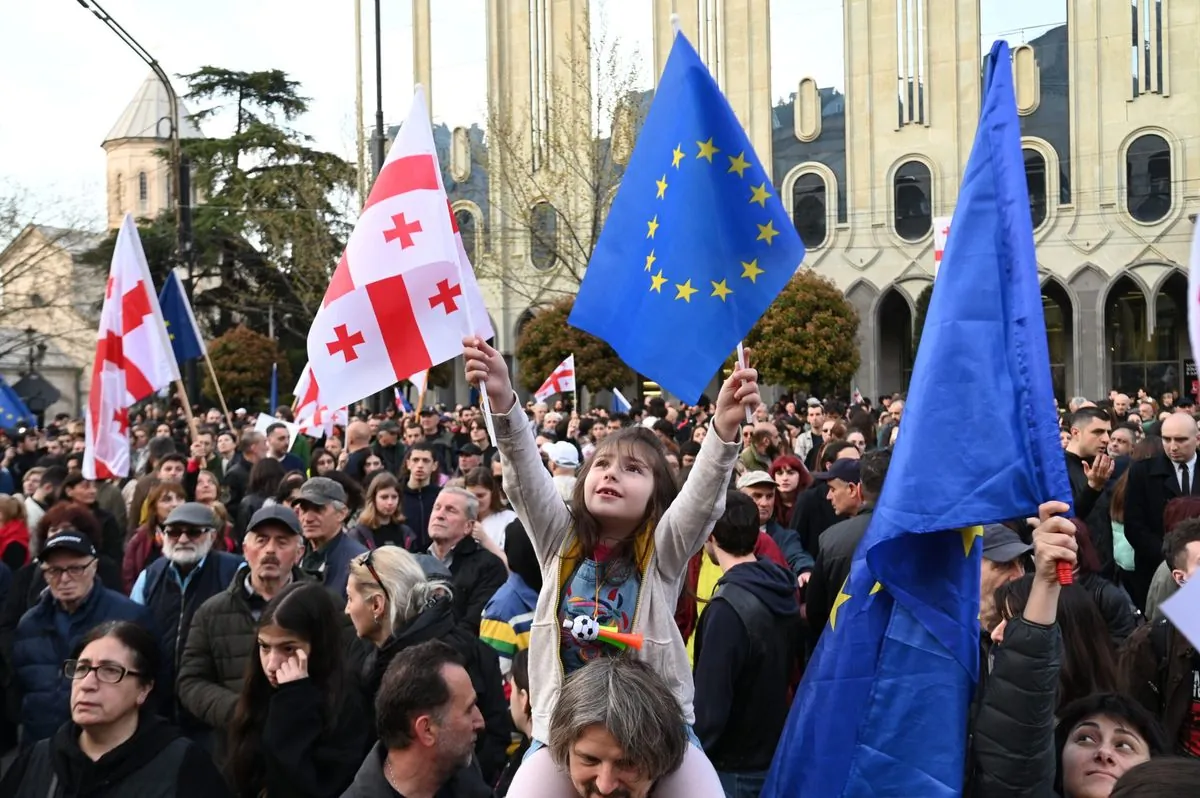In the heart of Tbilisi, Levan Sutidze, editor-in-chief of Tabula, voices his opposition to the Georgian government's recent actions. His concerns reflect a broader unease among independent journalists and civil society organizations in Georgia, a nation of approximately 3.7 million people nestled in the Caucasus region.
The focus of this discontent is the "Transparency of Foreign Influence" Law, passed in May 2024. This legislation requires organizations receiving over 20% of their funding from abroad to register as "representing foreign interests." Critics argue that this law, reminiscent of similar legislation in Russia, threatens Georgia's democratic foundations and its aspirations for closer ties with the West.
Levan Ramishvili, a professor at Free University of Tbilisi, draws parallels between the Georgian government's actions and those of Russian President Vladimir Putin. He suggests that both have misinterpreted Western responses to their actions, potentially emboldening their anti-democratic moves.
The law's introduction sparked massive protests, with reports of up to 200,000 people participating. These demonstrations, largely led by young Georgians, reflect the country's complex political landscape. Georgia, which declared independence from the Soviet Union in 1991, has since pursued a path of Western integration, seeking membership in both the EU and NATO.
"This is a direct war against Russia. This is the final battle—if we don't fight now, we might lose our sovereignty next year, or if we retain it, it will be purely symbolic. We must defend it all the way. If not now, when?"
The government's response to these protests has been criticized as heavy-handed, with reports of violence against demonstrators and intimidation of activists and journalists. This approach has raised concerns about Georgia's commitment to democratic values, despite its rich cultural heritage and historical significance as a crossroads of civilizations.
International reactions have been swift. The United States has suspended $95 million in aid and imposed visa bans on numerous Georgian officials. The European Union, while more restrained, has frozen some assistance. These actions reflect the international community's concern about Georgia's democratic trajectory.
Despite these pressures, the Georgian government has proceeded with implementing the law. The deadline for organizations to register under the new system passed on September 2, 2024, with only about 1% of Georgia's 30,000 NGOs complying. Many organizations, including Tabula, have chosen to relocate their financial operations or outright refuse to comply.
Tamar Kintsurashvili, head of the Media Development Fund, emphasizes the law's repressive nature and its potential to stifle independent voices in Georgia. Her organization, along with 121 others, has filed a lawsuit in the Georgian Constitutional Court to challenge the law's validity.
As Georgia approaches its October 2024 parliamentary elections, the political atmosphere remains tense. The ruling Georgian Dream party defends the law as necessary for transparency, while critics see it as a step towards authoritarianism. The outcome of these elections could significantly impact Georgia's future direction, potentially affecting its relationships with both the West and Russia.
Georgia's situation highlights the ongoing challenges faced by young democracies in maintaining their independence and fostering democratic institutions. As a country with a unique alphabet, a wine-making tradition dating back 8,000 years, and a rich cultural heritage including UNESCO-recognized polyphonic singing, Georgia stands at a crossroads between its aspirations for Western integration and the pull of its complex historical ties with Russia.
